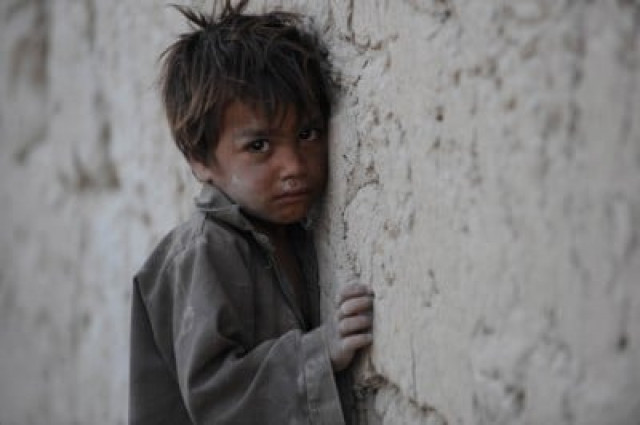Corporations, feudals should not control access to food
Peasant leader says all govts failed to meet MDG goals on food security

PHOTO: FILE
“The newborn does not cry to go to a mosque or a mandir. He cries for sustenance,” he said.
Baskota was addressing a seminar organised by the Awami Workers Party (AWP) and South Asian Alliance for Poverty Eradication (SAAPE). The seminar was titled Agricultural Land, Feudalism and Food Sovereignty on International Food Day and scores of representatives of the Kissan Rabta Committee and Anjuman-i-Mazaraeen-i-Punjab attended the evening.
Banskota said that food security was a grave issue of global significance.
“It is unfortunate that corporate greed for profit is making food inaccessible,” he said.
“South Asia was once a land of rice,” he said. “This region is now home to millions of poor people,” he said.
“One does not die from a lack of motorbikes and fancy clothes but one cannot survive without food,” Banskota said.
“Food is not a commodity. It is treated as a commodity by corporations and industrialists so that they can make a profit by exploiting a basic human need.”
“It is interesting to note that no government in the world has been able to meet Millennium Development Goal (MDGs) for food security. They have extended their commitments to 2025.”
He said governments should pay attention to food production.
“Neo-liberal governments talk about food-security and food-sovereignty in the same breath,” he said. “They don’t point out that food-security could not guarantee food-sovereignty.”
He said food sovereignty was the right to healthy and culturally appropriate food produced through ecologically sound and sustainable methods, and their right to define their own food and agriculture systems.
He said that food-sovereignty represented a peasant’s narrative.
AWP president Abid Hassan Minto said more than 60 per cent of the country’s population was associated with the agriculture sector.
“It is unfortunate that food production is controlled by feudal lords and corporations,” he said.
Anjuman-i-Mazareen-i-Punjab (AMP) Depalpur president Shabbir said, “One does not have to look beyond Okara to see what oppression of the ruling elite means,” he said.
He said peasants of Okara had suffered greatly.
“Their cattle were captured, crops destroyed, trees cut down and houses dismantled for military farms,” he said.
He said hundreds had been left homeless.
Shafiq Ahmad Shafiq, an Awami Workers Party (AWP) activist, recited a poem at the end of the seminar.
Published in The Express Tribune, October 16th, 2015.



1724319076-0/Untitled-design-(5)1724319076-0-208x130.webp)















COMMENTS
Comments are moderated and generally will be posted if they are on-topic and not abusive.
For more information, please see our Comments FAQ